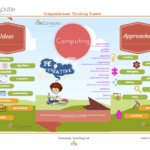The Power of Community Engagement
Community engagement is a vital aspect of building strong, resilient, and vibrant communities. It involves individuals coming together to actively participate in activities and initiatives that benefit the greater good of the community.
One of the key benefits of community engagement is the sense of belonging and connection it fosters among residents. By working together towards common goals, community members develop relationships, trust, and a shared sense of purpose. This not only strengthens social bonds but also creates a support network that can help individuals in times of need.
Furthermore, community engagement leads to increased civic participation and empowerment. When individuals are involved in decision-making processes that affect their community, they feel more invested in its well-being and are more likely to take action to create positive change. This can result in improved public services, infrastructure, and overall quality of life for residents.
Engaging with the community also provides opportunities for personal growth and skill development. Through volunteering, participating in local events, or joining community organizations, individuals can enhance their leadership abilities, communication skills, and cultural competence. These experiences not only benefit the individual but also contribute to building a more inclusive and diverse community.
In addition, community engagement plays a crucial role in addressing social issues and promoting social justice. By raising awareness about important issues, advocating for marginalized groups, and working towards equity and inclusion, communities can create a more just society where everyone has equal opportunities to thrive.
In conclusion, community engagement is a powerful tool for creating positive change at the local level. By actively involving residents in shaping their communities, we can build stronger connections, empower individuals, foster personal growth, address social issues, and ultimately create a more cohesive and resilient society.
9 Key Benefits of Community Engagement: Building Stronger, Inclusive, and Empowered Neighborhoods
- Strengthens social bonds and relationships within the community.
- Fosters a sense of belonging and connection among residents.
- Empowers individuals to take an active role in shaping their community.
- Leads to increased civic participation and democratic engagement.
- Creates a support network for individuals in times of need.
- Promotes personal growth and skill development through volunteering and participation.
- Addresses social issues and promotes social justice at the local level.
- Enhances the overall quality of life for residents by improving public services and infrastructure.
- Builds a more inclusive, diverse, and resilient community.
Seven Challenges of Community Engagement: From Time Constraints to Power Imbalances
- Time commitment may be demanding for busy individuals.
- Conflict and disagreements can arise among community members with differing viewpoints.
- Not everyone in the community may be willing or able to participate, leading to unequal representation.
- Community engagement initiatives may face challenges in securing funding and resources.
- There is a risk of burnout for those heavily involved in multiple community projects.
- Community engagement efforts may not always result in immediate tangible outcomes, leading to frustration.
- Power dynamics within the community can impact decision-making processes and hinder inclusivity.
Strengthens social bonds and relationships within the community.
Community engagement strengthens social bonds and relationships within the community by providing opportunities for individuals to come together, collaborate, and connect with one another. Through shared experiences, common goals, and mutual support, community members build trust, empathy, and a sense of belonging. These strong social bonds not only enhance the overall well-being of individuals but also create a tight-knit community where people feel valued, understood, and connected to one another. By fostering meaningful relationships, community engagement lays the foundation for a supportive network that can weather challenges, celebrate successes, and uplift each other in times of need.
Fosters a sense of belonging and connection among residents.
Community engagement plays a crucial role in fostering a sense of belonging and connection among residents. By actively participating in community activities and initiatives, individuals develop meaningful relationships, build trust, and form a shared identity with their neighbors. This sense of belonging not only strengthens social bonds but also creates a supportive network where residents feel valued, understood, and connected to something greater than themselves. As a result, community engagement helps cultivate a strong community spirit that enhances overall well-being and quality of life for all members.
Empowers individuals to take an active role in shaping their community.
Community engagement empowers individuals to take an active role in shaping their community by providing them with a platform to voice their ideas, concerns, and aspirations. When community members are involved in decision-making processes and initiatives that directly impact their neighborhoods, they feel a sense of ownership and responsibility for the well-being of their community. This active participation not only allows individuals to contribute their unique perspectives and talents but also instills a sense of pride and accomplishment in knowing that they are making a tangible difference in creating a better future for themselves and those around them.
Leads to increased civic participation and democratic engagement.
Community engagement leads to increased civic participation and democratic engagement by empowering individuals to have a voice in the decision-making processes that shape their communities. When community members actively participate in local initiatives, attend town hall meetings, vote in elections, and advocate for important issues, they contribute to a more vibrant democracy where diverse perspectives are heard and valued. This active involvement not only strengthens the fabric of society but also fosters a sense of ownership and responsibility among residents towards creating a more inclusive and equitable community for all.
Creates a support network for individuals in times of need.
Community engagement plays a crucial role in creating a support network for individuals in times of need. By fostering strong social connections and relationships within the community, individuals can rely on their neighbors, local organizations, and fellow community members for assistance, comfort, and resources during challenging times. This sense of solidarity and mutual aid not only provides practical help but also emotional support, reducing isolation and ensuring that no one has to face difficulties alone.
Promotes personal growth and skill development through volunteering and participation.
Community engagement promotes personal growth and skill development through volunteering and participation by providing individuals with opportunities to expand their horizons, learn new skills, and gain valuable experiences. Through active involvement in community initiatives, individuals can enhance their leadership abilities, communication skills, teamwork, and cultural awareness. Volunteering not only benefits the community but also offers a platform for individuals to challenge themselves, step out of their comfort zones, and contribute meaningfully to causes they are passionate about. This pro of community engagement empowers individuals to develop personally and professionally while making a positive impact on the world around them.
Addresses social issues and promotes social justice at the local level.
Community engagement plays a crucial role in addressing social issues and promoting social justice at the local level. By bringing together individuals who are passionate about creating positive change, communities can raise awareness about important issues, advocate for marginalized groups, and work towards equity and inclusion. Through collaborative efforts and collective action, community engagement empowers residents to stand up for what is right, challenge systemic injustices, and create a more just society where everyone has equal opportunities to thrive.
Enhances the overall quality of life for residents by improving public services and infrastructure.
Community engagement plays a crucial role in enhancing the overall quality of life for residents by improving public services and infrastructure. When community members actively participate in decision-making processes and collaborate with local authorities, they can advocate for better public services such as improved transportation, healthcare facilities, parks, and schools. By working together to identify and address the needs of the community, residents can create a more livable environment that promotes well-being and prosperity for all.
Builds a more inclusive, diverse, and resilient community.
Community engagement plays a crucial role in building a more inclusive, diverse, and resilient community by bringing together individuals from different backgrounds, experiences, and perspectives. Through active participation in community initiatives and events, people have the opportunity to learn from one another, celebrate diversity, and work towards common goals. This not only fosters a sense of belonging for all residents but also strengthens the community’s ability to adapt and thrive in the face of challenges. Embracing inclusivity and diversity through community engagement creates a rich tapestry of ideas, talents, and resources that contribute to a more vibrant and resilient society.
Time commitment may be demanding for busy individuals.
One significant drawback of community engagement is the demanding time commitment it may require, especially for individuals with busy schedules. Participating in community activities, attending meetings, volunteering, and contributing to projects all take time and effort, which can be challenging for those juggling work, family responsibilities, and other commitments. This time constraint may deter some individuals from getting involved in community engagement efforts, limiting the diversity of voices and perspectives that could enrich community initiatives. Finding a balance between personal responsibilities and community involvement can be a struggle for many, highlighting the need for flexible engagement opportunities to accommodate the varying schedules of community members.
Conflict and disagreements can arise among community members with differing viewpoints.
Conflict and disagreements can be a significant con of community engagement, as diverse viewpoints and opinions can sometimes lead to tensions within the community. When individuals come together to engage in discussions or decision-making processes, it is inevitable that differing perspectives will emerge, potentially resulting in conflicts. These disagreements can hinder progress, create divisions, and strain relationships among community members. Managing and resolving conflicts effectively is essential to ensure that community engagement efforts remain constructive and inclusive, allowing for meaningful collaboration and positive outcomes for all involved.
Not everyone in the community may be willing or able to participate, leading to unequal representation.
One significant con of community engagement is that not everyone in the community may be willing or able to participate, which can result in unequal representation. Factors such as time constraints, lack of resources, language barriers, or personal circumstances may prevent certain individuals from actively engaging in community activities and decision-making processes. This lack of diverse participation can lead to a skewed representation of the community’s needs and perspectives, potentially marginalizing voices that are crucial for creating inclusive and equitable solutions. Addressing this challenge requires intentional efforts to reach out to underrepresented groups, remove barriers to participation, and create inclusive spaces where all community members feel valued and heard.
Community engagement initiatives may face challenges in securing funding and resources.
One significant challenge of community engagement initiatives is the difficulty in securing adequate funding and resources to support their activities. Without sufficient financial support, organizations and groups involved in community engagement may struggle to sustain their programs, reach a wider audience, or implement impactful projects. Limited resources can hinder the effectiveness and longevity of community engagement efforts, making it challenging to address pressing issues and meet the diverse needs of the community. Overcoming this obstacle requires creative fundraising strategies, partnerships with stakeholders, and advocacy for greater investment in community-driven initiatives to ensure their sustainability and success.
There is a risk of burnout for those heavily involved in multiple community projects.
One significant drawback of community engagement is the potential risk of burnout for individuals who are heavily involved in multiple community projects. While the desire to make a difference and contribute to various initiatives is admirable, spreading oneself too thin can lead to physical, emotional, and mental exhaustion. Constantly juggling responsibilities and commitments across different projects can take a toll on one’s well-being and overall effectiveness. It is essential for individuals engaged in community work to prioritize self-care, set boundaries, and seek support to prevent burnout and sustain their passion for making a positive impact in their communities.
Community engagement efforts may not always result in immediate tangible outcomes, leading to frustration.
Community engagement efforts may not always result in immediate tangible outcomes, which can lead to frustration among participants. Despite the time and effort invested in community initiatives, the impact may not be immediately visible or measurable. This lack of instant gratification can discourage individuals who are seeking quick results or concrete rewards for their involvement. It is important to recognize that community engagement is a long-term investment that requires patience, persistence, and a focus on the collective benefits rather than immediate gains. By managing expectations and emphasizing the value of sustained effort over time, communities can overcome this challenge and continue to work towards creating lasting positive change.
Power dynamics within the community can impact decision-making processes and hinder inclusivity.
Power dynamics within a community can significantly impact decision-making processes and hinder inclusivity. In some cases, certain individuals or groups may hold more influence or authority, leading to unequal participation and representation in community engagement efforts. This imbalance of power can result in marginalized voices being overlooked, decisions being made without considering diverse perspectives, and exclusivity within the community. Addressing these power dynamics is essential to ensure that community engagement is truly inclusive, equitable, and representative of all members of the community.





Leave a Reply